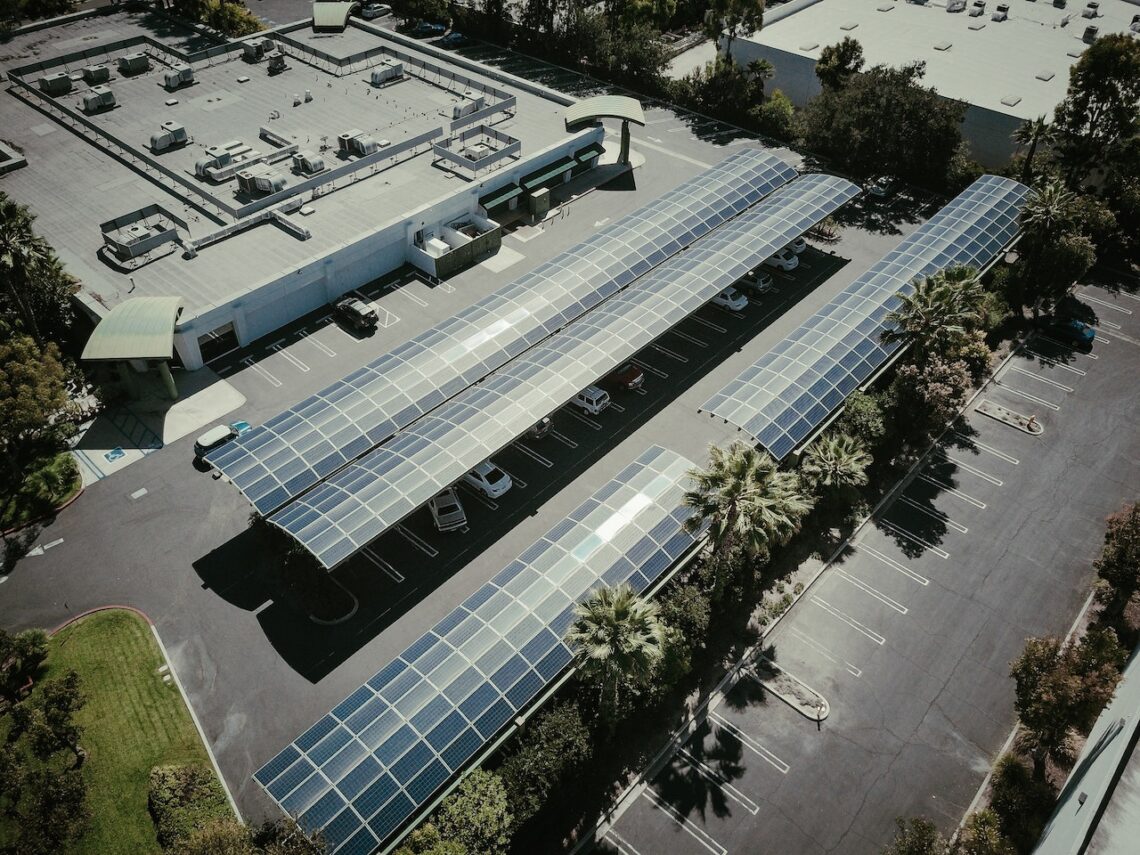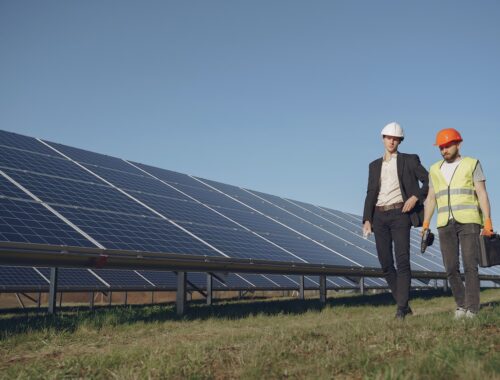
What are the different types of solar energy?
Solar energy is a clean, renewable, and sustainable source of energy that has become increasingly important in recent years as the world faces an energy crisis and the need for clean, renewable energy sources becomes more pressing. Solar energy is generated through the use of photovoltaic (PV) panels, which convert sunlight into electricity. There are several different types of solar energy, each with its own unique advantages and disadvantages.
The first type of solar energy is photovoltaic (PV) solar energy. This is the most common type of solar energy and involves the use of photovoltaic panels to convert sunlight into electricity. PV solar panels can be installed on homes, businesses, and even entire communities, providing a clean and sustainable source of energy on a small or large scale.
The second type of solar energy is concentrated solar power (CSP). CSP involves the use of mirrors or lenses to concentrate sunlight onto a small area, which is then used to generate steam and produce electricity. CSP is particularly well-suited to large-scale energy generation and can provide a reliable source of energy even when the sun is not shining.
A third type of solar energy is passive solar energy. Passive solar energy involves the use of passive solar design principles to harness the sun’s energy for heating and cooling buildings. This can be accomplished through the use of large windows, well-insulated walls and roofs, and other design features that allow the sun’s energy to be captured and used to regulate the temperature inside the building.
Another type of solar energy is building-integrated photovoltaics (BIPV), which involves the integration of photovoltaic panels into the building itself. This can be done by incorporating the panels into the roof, walls, or other parts of the building, allowing the building to generate its own electricity. BIPV is a highly efficient and cost-effective way to generate energy, as it eliminates the need for separate solar panels and reduces the cost of installation.
Solar water heating is another type of solar energy that involves the use of solar panels to heat water for use in homes, businesses, and communities. Solar water heating is a cost-effective and environmentally friendly alternative to traditional water heating methods, and can provide a reliable source of hot water even when the sun is not shining.
Solar thermal energy is a type of solar energy that involves the use of solar panels to generate heat, which is then used to produce electricity. Solar thermal energy is well-suited to large-scale energy generation and can provide a reliable source of energy even when the sun is not shining.
Another type of solar energy is hybrid solar energy, which involves the use of a combination of different types of solar energy to generate electricity. For example, a hybrid system may use a combination of photovoltaic panels and concentrated solar power to generate electricity, providing a more reliable source of energy by combining the strengths of both types of solar energy.
Solar power satellites are another type of solar energy that involves the use of satellites to collect solar energy and transmit it back to Earth. This type of solar energy is still in the early stages of development, but has the potential to provide a highly efficient and cost-effective source of energy for the entire world.
Another type of solar energy is community solar energy, which involves the installation of solar panels in a community setting, allowing multiple homes or businesses to share the energy generated by the panels. Community solar energy is a cost-effective and sustainable alternative to traditional energy sources, as it reduces the cost of installation and provides a reliable source of energy for multiple homes and businesses.

Solar energy can also be used in agriculture, through the use of solar-powered irrigation systems and other types of solar-powered agricultural equipment. This type of solar energy can help to reduce the cost of farming and increase crop yields, while also reducing the dependence on non-renewable energy sources.
Another area where solar energy is being used is in the oil and gas industry. Solar panels can be used to provide power to oil and gas rigs, reducing the need for diesel-powered generators and reducing greenhouse gas emissions. In addition, solar energy can be used to power the pumping and compression systems used in the production of oil and natural gas, further reducing the dependence on non-renewable energy sources.
Another type of solar energy is portable solar energy, which involves the use of portable solar panels and batteries to generate electricity. Portable solar energy is particularly useful for people who live in remote areas or for those who need a reliable source of energy when traveling. Portable solar panels can be used to charge electronic devices, power lighting, and provide heat, making them a versatile and convenient alternative to traditional energy sources.
Solar energy can also be used in disaster relief and emergency response efforts. Portable solar panels and batteries can be used to provide power and light in the aftermath of natural disasters, reducing the dependence on traditional energy sources and improving response times.
Finally, solar energy can also be used in transportation, through the use of solar-powered vehicles and other types of solar-powered transportation. This type of solar energy has the potential to reduce dependence on non-renewable energy sources, as well as reducing greenhouse gas emissions and improving air quality.
In conclusion, there are several different types of solar energy, each with its own unique advantages and disadvantages. Whether you are looking for a source of electricity for your home, business, or community, or you are interested in reducing your dependence on non-renewable energy sources, solar energy has a lot to offer. From photovoltaic solar energy and concentrated solar power to passive solar energy and solar water heating, there is a type of solar energy that is well-suited to meet your energy needs. As technology continues to improve and the cost of solar energy continues to decrease, it is likely that we will see even more widespread adoption of solar energy in the years to come.
You May Also Like

Exploring the Four Main Uses of Solar Energy
May 9, 2023
Solar Power and Energy Storage: The Role of Batteries
July 3, 2023

